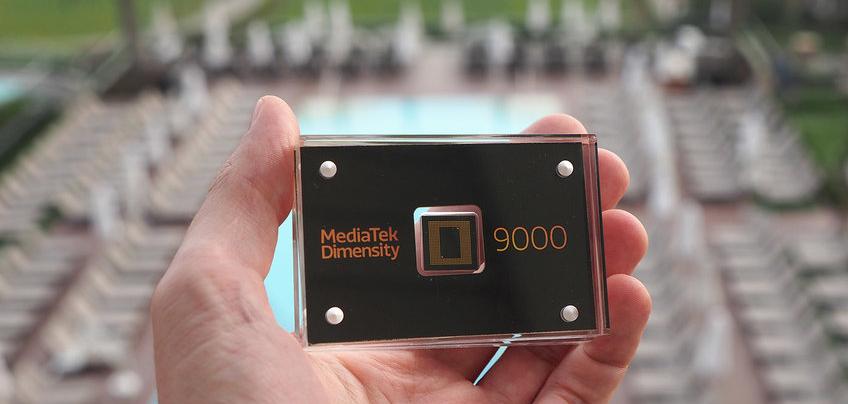On the afternoon of December 16, MediaTek, a world-renowned semiconductor manufacturer, released a new generation of high-end flagship chips for smartphone platforms - Tianji 9000.

According to official data, Tianji 9000 has excellent performance, CPU performance has been increased by 35% on the basis of the previous generation, energy efficiency has increased by 37%, image processing GPU performance has increased by 35%, energy efficiency has increased by 60%, and APU performance has increased by 4 times.
After the meeting, MediaTek also announced the 9,000 Antu rabbit running score of Tianji - 1.01 million to 1.03 million.
This can't help but remind people of the new generation of high-end flagship chip released by Qualcomm on December 1- Snapdragon 8gen1, Chinese "new generation Of Snapdragon 8 mobile processing platform".
According to official data, Qualcomm Snapdragon 8gen1 Antu rabbit running score is around 1.03 million-1.05 million.
Qualcomm Snapdragon 8gen1 and MediaTek Tianji 9000 are high-end flagship chips with the same positioning, equal running scores, similar architectures, and proper competitors.
So what is the measured performance of the two?
It is worth noting that although the Qualcomm Snapdragon 8gen1 was only released for half a month, in fact, the domestic model equipped with Snapdragon 8gen1 has been listed - Lenovo Moto edge X30, and the measured results show that the Snapdragon 8gen1 has overturned.
Snapdragon 888 due to high power consumption, serious frequency reduction frame drop, poor stability, can be described as widely criticized by consumers, in order to suppress ultra-high power consumption and heat, manufacturers have to limit its performance through the system scheduling level, so as to enhance its normal use in high-performance scenarios.
Therefore, before the release of snapdragon 8gen1, consumers had high hopes for the new core, hoping that Qualcomm could find a reasonable solution to suppress power consumption and improve stability, and the results were disappointing.
Measured results show that Snapdragon 8gen1 does have a lot of performance improvements on the basis of Snapdragon 888, but most of these improvements are concentrated in the image processing GPU, CPU improvement is not large, more desperate, Snapdragon 8gen1 power consumption, stability, heat and other issues still exist, Qualcomm not only did not improve, but even more serious than Snapdragon 888.
For example, the flagship model equipped with Snapdragon 888 consumes less than 10W, while the Snapdragon 8gen1 consumes up to 11W, and in the high-load game scenario, the body temperature of Moto edge X30 soars to 61 ° C, which is still the fuselage temperature, and the internal temperature of the fuselage can be imagined.
So how about the actual measurement of MediaTek Tianji 9000, because it has just been released for two days, there has not yet been a relevant model on the market, but the AndSPEC06 test results show that the actual power consumption of the Ultra Core of the Tianji 9000 Cortex-X2 CPU is 2.63W, which is far lower than the 3.89W of qualcomm Snapdragon 8gen1.
It should be known that the frequency of Tianji 9000 super core is 3.05Ghz, Snapdragon 8gen1 is 3.0Ghz, and the super core frequency is higher than that of Qualcomm Snapdragon 8gen1, and the resulting power consumption control is 1.26W lower than Qualcomm, and the power consumption control is excellent.
Data from @Feiwei
Performance/watt data shows that Snapdragon 8gen1 performance/watt data is 12.43, Tianji 9000 performance/watt data is 18.54, and Tianji 9000 is 49% ahead of Snapdragon 8gen1.
In terms of large cores, the Snapdragon 8gen1 A710 large core frequency is 2.5Ghz, the Tianji 9000 A710 large core frequency is 2.85Ghz, theoretically speaking, the higher the frequency, the higher the power consumption, but the test data shows that the Performance of the Tianji 9000 Large Core Single Core is 38.27, the energy efficiency value is 22.25, and the Snapdragon 8gen1 single core performance is 32.83, and the energy efficiency value is 15.94.
The data comes from @Feiwei
The power consumption of the Tianji 9000 after removing the no-load is only 1.72W, which is close to 40% ahead of the Snapdragon 8gen1.
In other words, while maintaining a super core and a higher frequency than the Snapdragon 8gen1, the Tianji 9000 has achieved lower power consumption than the Snapdragon 8gen1.
Of course, this is only the test data under peak performance conditions, non-daily use in high-load scenarios, usually super core, large core and large core will not be full of fire, but reduce the frequency of operation, so this data is for reference only.
MTK Yes? Or Qualcomm Yes? We wait for more models to be listed before comprehensive evaluation.
However, personally, I still hope that MTK can be Yes. Why qualcomm has continued to pull crotch in the past two years, in the final analysis, it is still a bit floating after dominating the world, and now MediaTek is high-end, it is estimated that Qualcomm will be nervous.